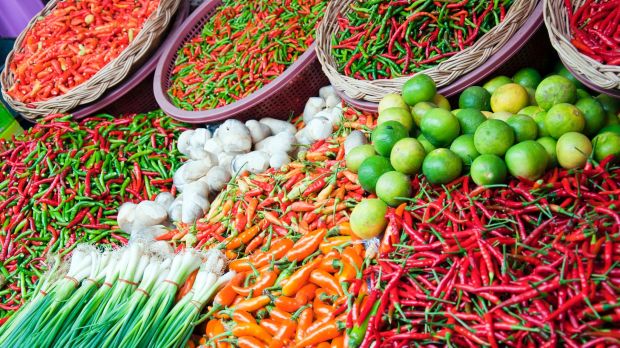Coles’ and Woolworths’ push into the healthfoods category has been bolstered by a global survey underlining the strength of consumer demand for healthier packaged and fresh foods.
According to research firm Nielsen, about 71 per cent of consumers in the Asia Pacific region are changing their diets to lose weight and 25 to 40 per cent are more than willing to pay a premium for foods that are free from artificial colours, flavours and gluten, low in fat and salt, and higher in protein and fibre.
 Climate change will affect food production. Photo: iStock
Climate change will affect food production. Photo: iStock
In Australia, more than half (56 per cent) of consumers believe they are overweight and 78 per cent believe changing their diet is more important than exercising.
This behaviour is underpinning strong growth in the healthfoods category and prompting Coles and Woolworths to boost their offers by creating health food “destinations” within stores – increasing shelf space, expanding the number of products, and building private label brands.
Sales of packaged healthfoods grew by 8.2 per cent in supermarkets to $665 million last year, according to Nielsen Homescan, more than double the rate of growth in the broader food and grocery market and almost twice the rate of growth in fresh food (4.4 per cent) such as fruit and vegetables, dairy and meat.
Retailers’ private label healthfood brands grew by 18.1 per cent and now account for 15.5 per cent of sales in the category. About 52 per cent of healthfood shoppers purchased a retailer brand in the past year.
The Nielsen data also suggested that Coles was outperforming its larger rival in the category, lifting its share to 36 per cent, ahead of Woolworths’ 34 per cent share.
Coles’ healthfood brands include Coles Organic, Coles Simply Less and Coles Simply Gluten Free.
“Coles is seeing a significant increase in demand for healthier foods such a quinoa, chia, coconut oil and coconut water,” a spokesman said.
“In response, we have introduced larger pack sizes on selected products and recently dropped the prices on our Coles Brand quinoa and chia products to give customers better value.”
Woolworths said sales of own-brand healthfood products including its Macro brand had been growing at an average 25 per cent a year for the last three years.
Woolworths acquired Macro Wholefoods for around $16 million in 2009 and launched Macro healthfoods in supermarkets later that year. Macro sales are now worth around $600 million a year.
“We have seen an increase in several product types including allergen-free products, ancient grains such as quinoa and chia seeds, as well as healthier snacking,” a spokesman said. “We have invested heavily in ensuring these products are given space in our stores and are now stocking more than 400 own-brand products in our range.”
Nielsen said more than two thirds of Australian households bought healthfood products last year, underlying the opportunity for suppliers and retailers alike.
